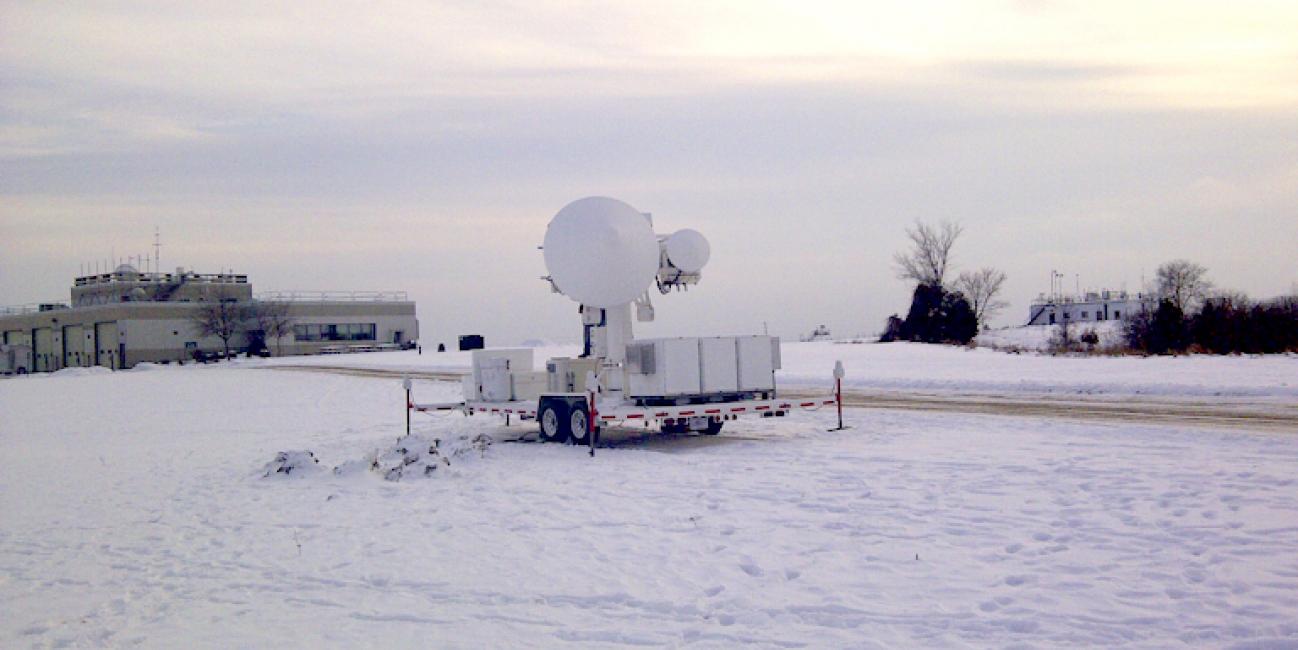
ICE-POP
International Collaborative Experiments for Pyeongchang 2018 Olympic and Paralympic Winter Games (ICE-POP 2018)
ICE-POP 2018 takes place during the Winter Olympics (February-March) of 2018 and focuses on the measurement, physics, and improved prediction of heavy orographic snow in the PyeongChang region of South Korea. ICE-POP is led by the Korean Meteorological Administration (KMA) as a component of the World Meteorological Organization’s (WMO) World Weather Research Program (WWRP) Research and Development and Forecast Demonstration Projects (RDP/FDP).
The 23rd Olympic Winter and the 13th Paralympic Winter Games will be held in PyeongChang, Korea on February 9-25 and March 9-18 respectively, 2018. The Winter Games are great opportunities to understand severe winter weather over complex terrain areas and to improve the predictability of nowcasting and very-short range forecasting. The W orld W eather Research Programme (WW RP) of the W orld Meteorological Organization (WMO) has approved and supported several international projects such as Forecast Demonstration Project (FDP) and Research and Development Project (RDP) to enhance the capability of member countries in the area of convective scale numerical weather prediction modeling, and to understand the high impact weather systems.
SNOW-V10 (Science of Nowcasting Olympic Weather for Vancouver 2010) was carried out for the observation monitoring and demonstration of nowcasting systems with the goals of development of a winter nowcasting system over complex terrain. FROST-2014 (Forecast and Research: the Olympic Sochi Testbed 2014) FDP/RDP applied a mesoscale ensemble prediction technique to winter weather over complex terrain and demonstrated winter nowcasting and high resolution numerical weather prediction.
These projects left several issues. The high spatial and temporal observation is essential to obtain good measurements and prediction of severe weather elements over complex terrain. The development or decay of precipitation due to terrain influences needs to be considered to improve the predictability of a winter nowcasting system based on radar echo extrapolation. There are still difficulties for verifying non-traditional variables (visibility and precipitation type, etc) despite of advances in forecast of these variables from high resolution models over complex terrain. Some verification results showed that high resolution was better than lower resolution but was sometimes worse.
KMA (Korea Meteorological Administration) and NIMS (National Institute for Meteorological Science) have a responsibility to provide weather information for the management of the Games and the safety of the public. To accomplish this mission, NIRM will carry out RDP/FDP for PyeongChang 2018 Winter Olympic Game. These projects are named as ICE-POP2018, which stands for International Collaborative Experiments for Pyeongchang Olympic & Paralympic 2018. These projects focus on intensive observation campaigns to understand severe winter weathers over the PyeongChang region, and the research results from RDP will be used to improve the accuracy of nowcasting and very-short-range forecast systems, which will be run in real time and the forecast will be provided to forecasters during the Games.
ICE-POP Goals:
- Improvement of our understanding on severe weathers (snowfalls, visibility, rapid wind changes and gusts,) over complex terrain - Specially focus on the microphysical processes over complex terrain as well as the impact of the ocean on snow to extend the experience from SNOW-V10 and FROST- 2014.
- Improvement of the predictability of nowcasting and very-short-range forecasting with a few kilometer horizontal resolution - Development of NWP-based nowcasting, multi-scale data assimilation and time- lagged ensemble for VSRF, and radar reflectivity and visibility data assimilation
- Improvement of verification and evaluation methods for high resolution model considering complex terrain - Development of verification methods for high spatial and temporal variables with remote-sensing observation and non-traditional variables (visibility and precipitation type, etc) to consider benefit for social and economic effect
Learn more: https://weather.msfc.nasa.gov/sport/icepop2018/

